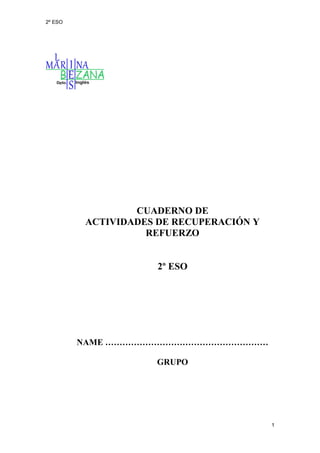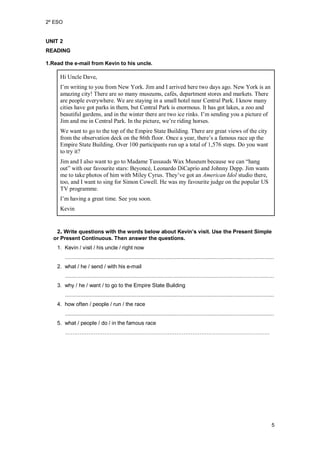The document provides instructions for completing a workbook of recovery and reinforcement activities for 2nd year secondary school students (2o ESO). It instructs students to first study the vocabulary and grammar from the textbook and workbook for each unit before completing the corresponding exercises in the workbook. It also provides the structure and weighting of the end-of-year extraordinary exam in September.

























